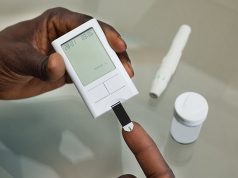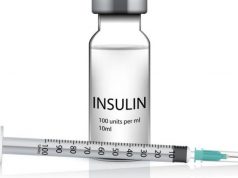The American Association of Clinical Endocrinologists’s 26th Annual Scientific and Clinical Congress
The annual meeting of the American Association of Clinical Endocrinologists was held from May 3 to 7 in Austin, Texas, and attracted approximately 17,000 participants from around the world, including clinicians, academicians, allied health professionals, and others interested in endocrinology. The conference highlighted recent advances in endocrinology, diabetes, and metabolism.
During one presentation, John E. Morley, M.D., of the St. Louis University School of Medicine, and colleagues discussed sarcopenia and its impact on patients with diabetes.
Morley noted that sarcopenia comes down to maintaining functional muscle, not necessarily muscle bulk.
“Large-sized muscles are not necessarily functional. Body builders may not have as much functional muscle as someone who specializes in boxing. Professional boxers do not always have obviously large muscles but they are highly functional,” Morley said. “If an individual loses functional muscle, it accelerates the aging process, as muscle is essential for functioning.”
Overall, Morley notes that sarcopenia becomes accelerated in patients with diabetes, and practicing clinicians should inform patients of preventive strategies to reduce loss of muscle function and strength, including resistance training.
During another presentation, Osama Hamdy, M.D., of the Joslin Diabetes Center in Boston, presented recent guidelines for managing diabetes during Ramadan fasting in Muslim patients with diabetes.
“Those patients face significant risk of acute diabetes complications, including hypoglycemia, hyperglycemia, diabetic ketoacidosis, and dehydration,” Hamdy said. “These guidelines provide guidance on how to better control diabetes during this period.”
Although patients have a religious exemption from fasting, 94 percent of practicing Muslims with diabetes fast against physician advice at least 15 days per month, and 67 percent fast every day for the entire month, against medical advice.
According to Hamdy, patients need to test six times per day, which includes testing before their first meal (Suhur) and then test when they wake up. The three tests that are very important are midday, mid-afternoon, and before the second meal (Iftar), as the chance for hypoglycemia is highest at those times.
“For medication adjustment, it varies, but for those on oral medication or insulin once daily, they should take it with their big meal at the end of the day instead of the morning. If they are well controlled, the insulin dose is reduced by 15 to 30 percent. If they are well controlled and taking oral medication or insulin twice daily, they should move the regular morning dose to the last meal (Iftar) in the evening and take half of the other dose before the first meal (Suhur) in the morning,” Hamdy said. “The uniqueness of these new guidelines is that it was approved by Muslim religious leaders, which make it more convincing to patients who should follow medical advice.”
David S.H. Bell, M.D., a practicing endocrinologist in Mountain Brook, Ala., discussed heart failure in patients with diabetes.
“Cardiologists tend to be more procedure oriented and we, as endocrinologists, need to take responsibility in diagnosing heart failure at the earliest stages. We need to pay attention to any symptoms as well as assess our patients, determining whether they can walk up two flights of stairs, and do a physical examination,” Bell said. “If any symptoms or markers arise that could indicate heart failure, it is important to get a B-type natiuretic peptide test. If the test indicates heart failure, then it is important to order an echocardiogram to tell if ejection fraction is low or normal, and then treat appropriately. We need to be more proactive in diagnosing heart failure within our practices as early as possible.”
Copyright © 2017 HealthDay. All rights reserved.







